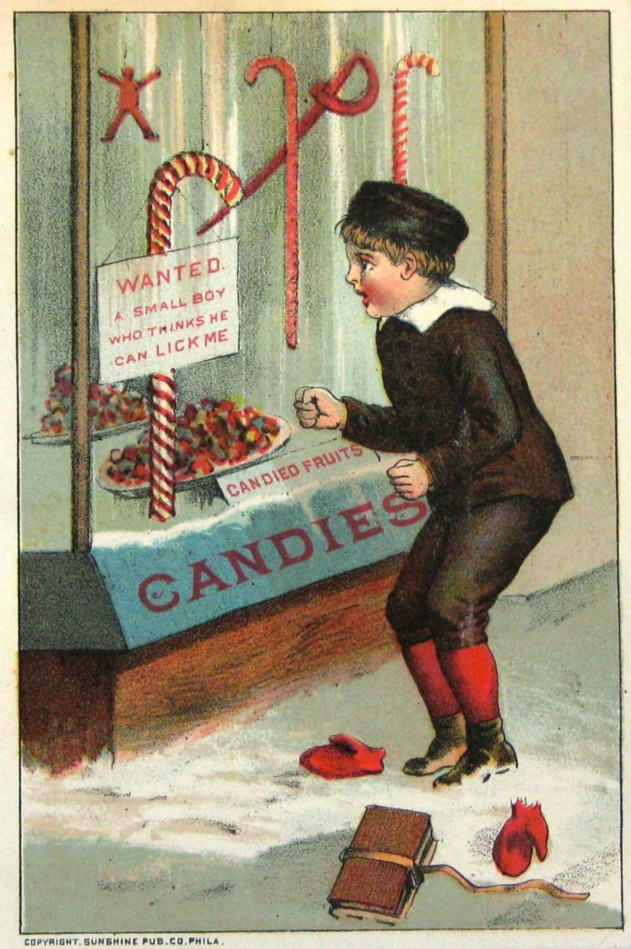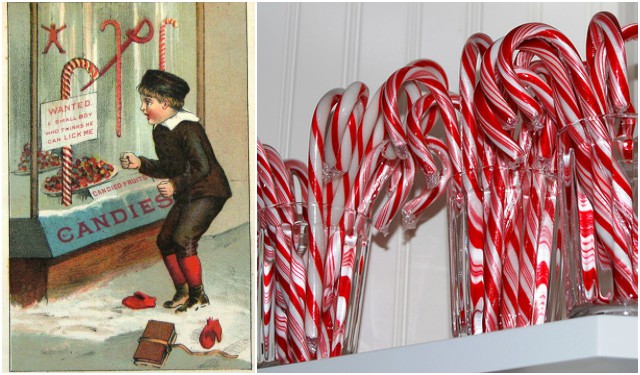Candy canes are part of Christmas tradition around the world and one of the regular symbols of Christmas. When was the candy cane invented, and how did it become a part of this tradition?
No one is exactly sure how the candy cane became a symbol of the season. However, there are many legends about its origins.

The most popular of these legends goes back to 1670 in Germany when a choirmaster supposedly gave candy sticks to noisy children to quiet them during the Christmas services. The canes were ‘J’ shaped as a shepherd’s crook to resemble the shepherds who had visited infant Jesus.
This legend might sound like a good explanation about the origins of the candy cane, but there aren’t any direct evidence which supports it.
Another legend depicts the candy cane as a secret symbol of Christianity and suggests the white base color of the cane as a symbol of Jesus’ purity, while the red stripes supposedly symbolize Jesus’ blood when he died on the cross, and the shape was chosen to represent the “J” in Jesus.
However, no historical evidence exist to support these claims, too.

In 1847, a German-Swedish immigrant named August Imgard of Wooster, Ohio, decorated a small blue spruce with paper ornaments and candy canes. At that time the candy canes were completely white in color. At the end of the 19th century, the red and white stripes and peppermint flavors became the norm.

Red stripes finally appeared in candy canes at the end of the 19th century, but no one knows who exactly invented the striped pattern prior to 1900 since Christmas cards from that period showed only all-white canes. The first illustrations of striped candy canes appeared at the beginning of the 20th century.
Around 1920, a candymaker named Bob McCormack opened McCormack’s Famous Candy company in Albany, Georgia. The company became popular for their candy canes and had become one of the world’s leading candy cane producers. Bob McCormack is credited with staining the candy canes with three red stripes.

Initially, the canes were handmade, but that changed when his brother-in-law Gregory Keller invented the machine that turned straight candy sticks into curved candy canes automatically.
The candy canes became a part of the Christmas tradition just like the Christmas tree, the stockings, the carols, etc.
